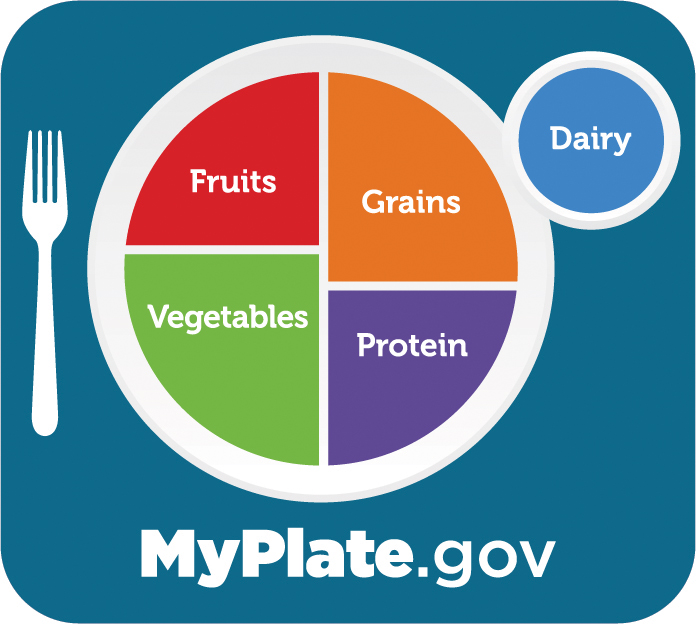Nutrition For Breastfeeding
nutrition for women
Nutrition For Breastfeeding
A nutritious, balanced diet helps you stay energetic and make plenty of breastmilk for your baby. Focus on eating a variety of nutrient rich foods rather than on weight loss to ensure you are providing enough breastmilk for your baby. See below how you can utilize your WIC food benefits to buy and make healthy meals and snacks.
WIC Food Packages
NM WIC provides monthly food packages specifically designed for breastfeeding women to help them purchase healthy foods. Each package is personalized to address the unique nutrition requirment of women.
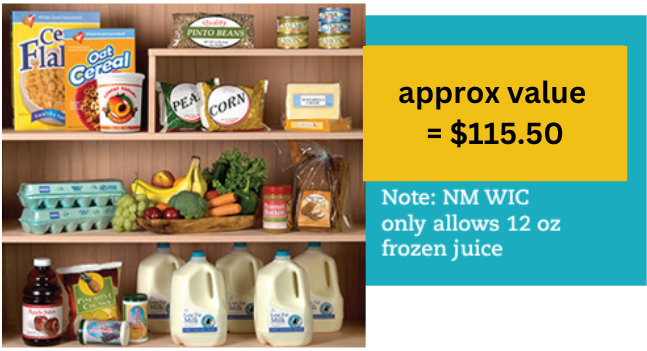
Fully breastfeeding
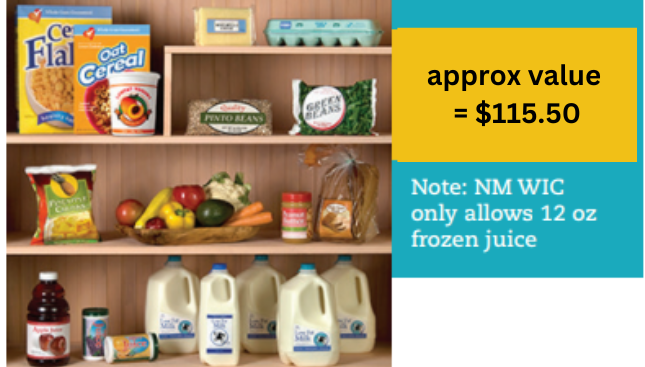
Partialy breastfeeding
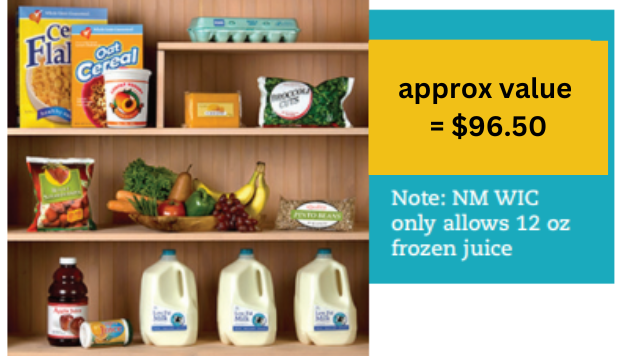
some breastfeeding
Breastfeeding Moms Eating Guide
Creating well balanced meals is easy when you use MyPlate. Find your healthy eating style by choosing a variety of foods to include fruits, vegetables, whole grains, protein, and dairy. All of these food groups are included in your monthly food package to help you find your healthy eating style.
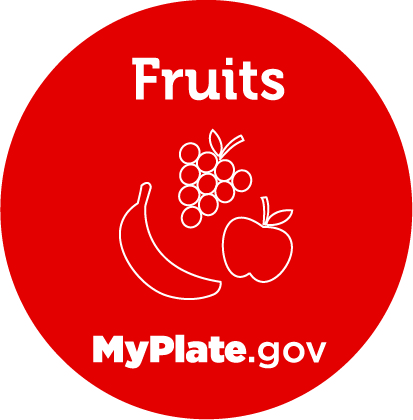
Focus on fruits
___________
2 cups daily
What Counts as a Cup?
- 1 cup of fruit your choice
- 1/2 cup of dried fruit your choice
- 8 oz of 100% fruit juice.
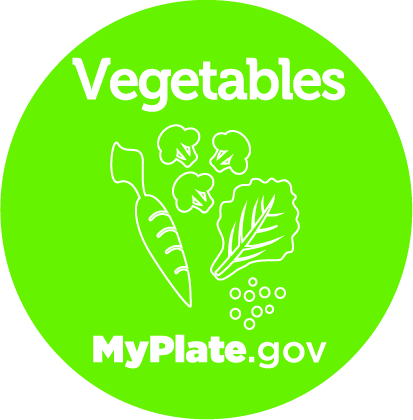
VAry Your Veggies
___________
3 cups daily
What Counts as a Cup?
- 1 cup of raw or cooked vegetables
- 2 cups of raw leafy greens
- 8 oz of 100% vegetable juice.
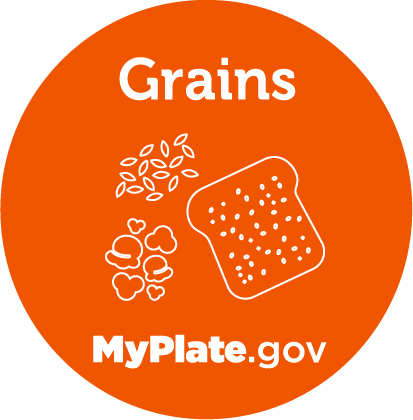
Make Half Your Grains WHole
___________
8 oz daily
What Counts as 8 oz?
- 1 slice of bread
- 1 cup of ready to eat cereal
- 1/2 of cooked rice, pasta, or cereal
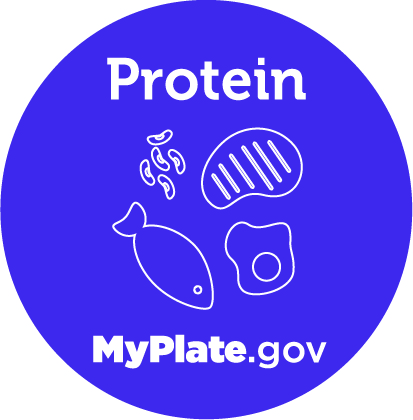
Go Lean
___________
6.5 oz daily
What Counts as an Ounce?
- 1 oz of fish
- 1/2 cup of cooked beans
- 1 egg
- 1/4 cup of tofu
- 1 tablespoon of peanut butter
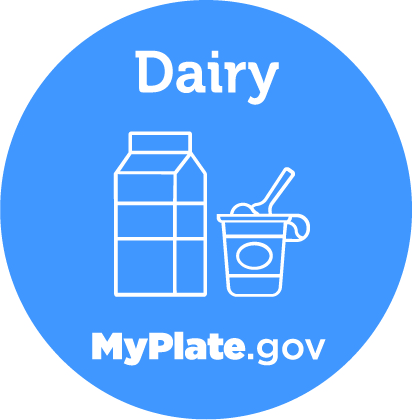
Get Your CAlcium Rich foods
___________
3 cups daily
What Counts as a Cup?
- 1 cup of milk
- 1 cup of yogurt
- 1.5 oz of cheese
My family now eats fresh vegetables. We changed from whole milk to 1% milk. We used to eat white bread, now we eat whole wheat bread. The WIC nutrition classes have been helpful to me in keeping my focus to shop healthy during my breastfeeding journey.
Sample Menu
When creating meals and snacks, include various colors, variety of foods, and ensure to include fiber in combination with protein and high fat foods to keep you satisfied and to prevent you feeling hungry between meals.

Breakfast
Grain: Whole wheat toast
Fruit: Sliced banana
Protein: Eggs
Dairy: Glass of milk
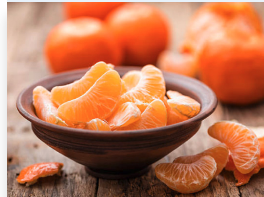
Morning Snack
Protein/Dairy: Whole milk greek plain yogurt
Fruit: Orange slices
Drink: Water

Lunch
Protein: Chili with Beans
Grain: Corn bread or whole wheat tortilla
Veggie: Sweet potoato
Dairy: Shredded cheese
Drink: Water
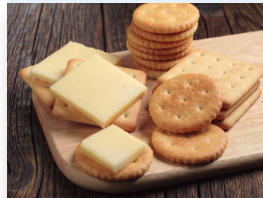
Afternoon snack
Protein/Dairy: Sliced Cheese
Grain: Whole wheat crackers
Fruit: sliced apples
Drink: Water

dinner
Protein: Chicken or Tofu
Grain: Brown rice
Veggies: Carrots and Broccoli
Dairy: Parmesan cheese
Drink: Water
Friendly reminder there is no specific food that is going to help you create more milk supply.
Focus on eating a well balanced diet to ensure the nutrition content of your milk to support the growth of your baby.
Ways To Improve The Nutrition Content Of Your Breastmilk
The nutritional composition of your breastmilk can help your baby grow strong and healthy.
The three top critical nutrients for a growing baby that are found in breast milk are:
- Vitamin D: is important for breastfeeding moms because the amount in your breastmilk, is the amount your baby will get. Vitamin D is essential for the health of bones, teeth, and immune system.
Sources provided by WIC: canned fish (salmon, sardines, and tuna), dairy foods, mushrooms
- DHA: is one of the essential omega 3 fatty acids and is the single most variable nutrients in breast milk. The amount of DHA foods you eat directly effects the amount in your breast milk. DHA is critical for the development of your babies brain and vision and may prevent or lessen the severity of postpartum depression.
Sources provided by WIC: eggs, salmon, sardines, canned fish (salmon, sardines).
- Choline: is essential for your babies neural tube development and cognitive function. The amount of choline foods you eat can effect how much is in your breastmilk.
Sources provided by WIC : eggs (with yolk), brussels sprouts, broccoli, shitake mushrooms, tofu, kidney beans.
Caffeine and Breastfeeding
What is caffeine?
Caffeine is a stimulant found in many foods and beverages. It is also found in some prescription and over the counter medications. Caffeine’s main effect is making people feel more awake for a short time. Large amounts of caffeine can cause dehydration, which can impact milk supply. So, it is important that breastfeeding mothers who use caffeine stay well-hydrated by drinking enough water.
What foods and beverages contain caffeine?
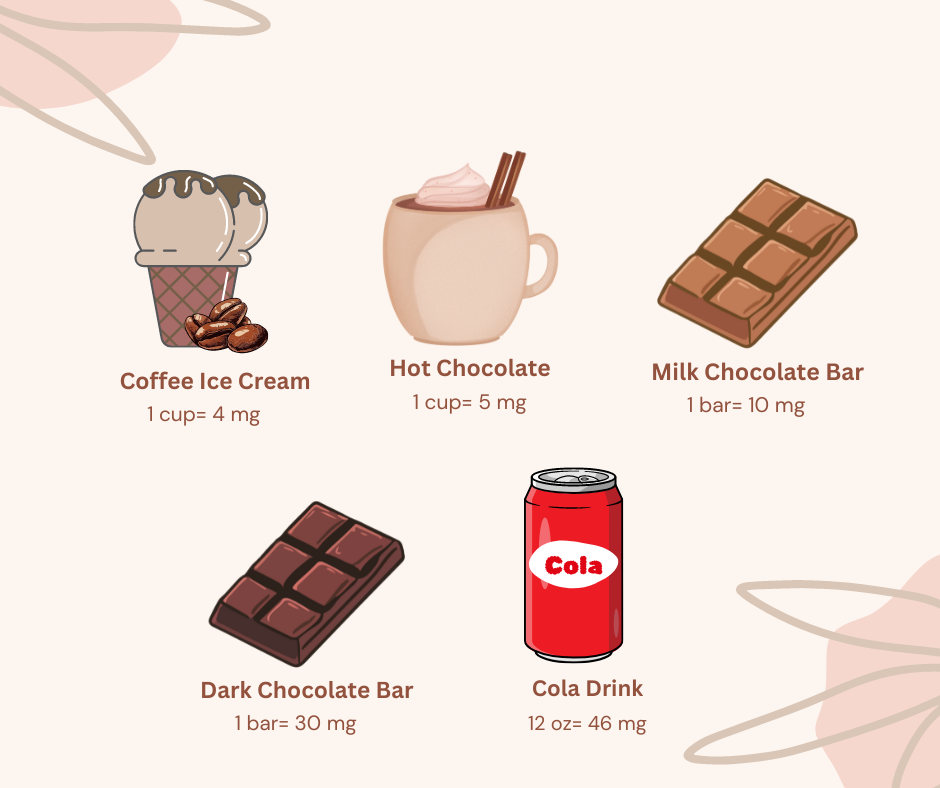
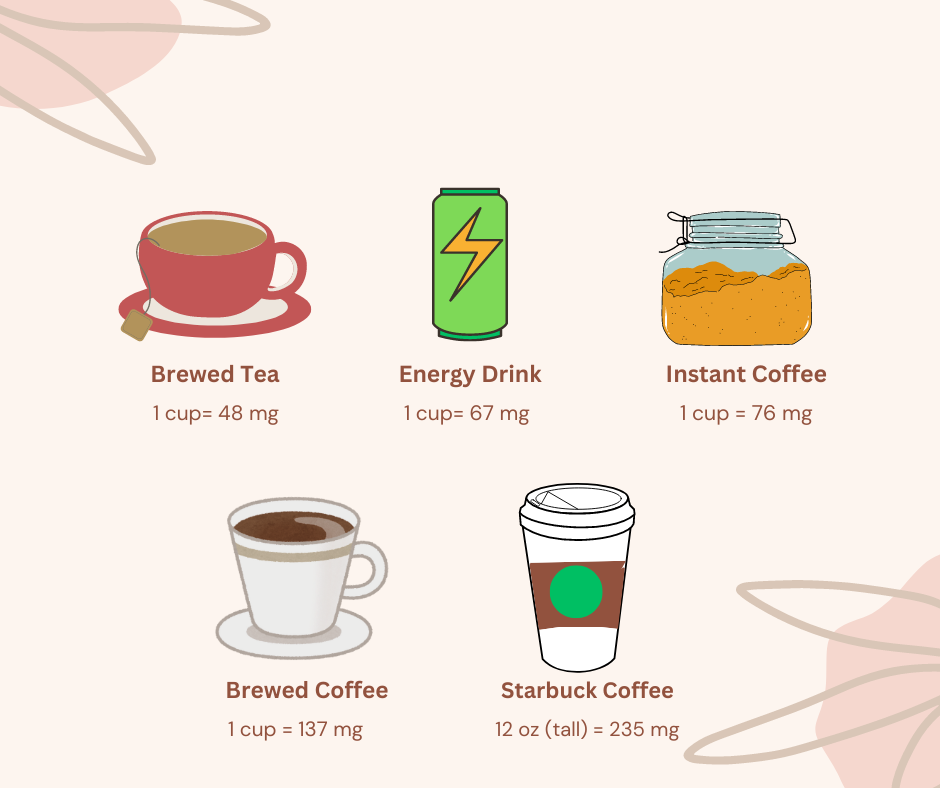
How much caffeine is safe to consume?
Up to 200-300 mg of caffeine , or about 2-3 cups of coffee is considered safe to consume while breastfeeding. Coffee intake of more than 450 mg daily may decrease breastmilk iron concentrations and result in mild iron deficiency anemia in some breastfed infants.
Coffee Levels
Low-200 mg or less
Mild- 200-300 mg
High – More than 300 mg
How would my baby react to my caffeine intake?
Babies who react to caffeine intake may be unusually irritable, fussy, or have a harder time staying asleep.

